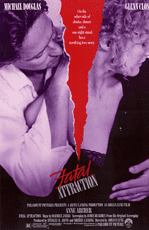So say the Beatles. Well, love — as a noun and in contrast to the verb of loving — is more than that fascinating and enchanting feeling. Love is all you need — and in the end — might not be delusional.

We like to think of love as profound, intense affection and esteem for the other as a whole, or as profound, intense affection and high esteem between the lovers. “I love you.” Who does not like to hear these words?
While we always seem to love this or that about the beloved, it just might be the way these special, as well as lesser “things,” come together in the beloved for us that makes us love him or her as he or she is. That then makes him or her rather unique for us — rare, precious, pre-eminent — and not easily replaceable by a rival.
Again, I am not able to offer a clear, simple, and universal explanation of love. So many things are called love, it might be one of the most misused words in human history. In the end, it might be easier to say what love is not.
A word, in any case, is just not very good in expressing a mood or emotion, or things that belong under the affective domain within the human psyche or soul. Words are good at describing physical things, like apples or phones, but experiences? Even one sentence, made up of words, cannot do justice to most experiences. Love is much more than one thing.
In any case, love needs reinventing echoes French philosopher Alain Badiou in his passionate treatise In Praise of Love.
However, I approach the phenomenon of love in reflective attentiveness that tries to disclose the individual’s “lived experience,” including my own.
Love as a Lived Experience
So, as people try to separate chaff from wheat or throw out the bathwater without the baby, we might try to do the same with all-things love and see what we may come up with. After getting rid of the many kinds of pseudo love, what shall remain then?
As that — whatever it is — perhaps only shimmers just a bit and only for a moment and thus can barely be sensed, it might still not be explainable any better. But is that then love — uncorrupted, and mutually and benevolently other person-oriented? Or are we then perhaps still seeing something just because we want to?
If we only can wish for love to be there, why not? Why not construct it as such, that is in the semblance of our best intentions? We already created a god in our image, and an afterlife. Yes, it is a romantic idea then — creating something noble out of nothing.
Some say that the more you come to know and love some person, the less you find yourself able to express what it is that you know and love. They say that love is about the ineffable, the unknowable, the transcendent. If it’s beyond us we may be able to feel it, they say, but we cannot say anything intelligible about it.
Well, I won’t argue with that, even though I try to say a few things
Perhaps it is good that we cannot explain love as easily or simply as ‘bread and butter.’ That allows people to imagine it as they wish, it allows for a certain freedom, a freedom that is being encroached on by the increasing complexities of civilized life. With ‘bread and butter,’ we got no wiggle room and might find ourselves in a sort of language prison. Love, on the other hand, is that liberating notion allowing our minds and hearts to expand beyond the horizon of time and space, beyond pain and pleasure. Love wants to last forever.
‘I will love myself some ice cream,’ Bonita told her friends the other day. Jose pressed on Felicity that ‘I’ll never love you again until you say sorry.’ Eiko wrote about Eric that ‘he loved her, but she only liked him.’ Jorge lamented to Clarissa that ‘we are still friends, but never came to love each other.’ And on and on it goes.
Fatal Attraction

Love often starts as a romance between two people, or at least one for another. No, loving myself some ice cream is not about love, not really. Romantic love is, even though it ends poorly too many times — so they say. True, literature and the movies are full of tragic or comic love stories.
A worst case scenario film is the movie Fatal Atteraction. In 1987 American psycho thriller film, actors Glenn Close, Michael Douglas and Anne Archer play out the story of a married man who has a weekend affair with a woman who refuses to allow it to end and becomes obsessed with him.
A pleasure to watch perhaps for a few, the movie is a nightmare for parents. ‘Is that what lies ahead for my children?’ they may wonder. Yes, that may very well be the case — at least for a few. But then again, the movie is not about genuine love, it is about pseudo-love, about obsession. And many a parent seems to miss that distinction to the point of then overprotecting their children. And some of these children then go on the run when old enough.
Is romantic love really that bad?
It certainly has gotten a bad rap it seems — at least in my, in many religious communities. That is unfortunate because many young people look to begin their intimate love lives not without romance, that is, not with a ‘family-approved candidate’ or not with a ‘good enough Mr. Right or good enough Ms. Perfect’ in a ‘safe’ companionship. Arranged marriages are still common in some traditional cultures, even here in the U.S.
To those who prefer the ‘safe’ route to love via a ‘family-driven engagement process,’ let’s say as currently exemplified by Rev. Moon’s Unification movement, I say ‘you are lucky in that you have a family or community that cares that much.’ Many, if not most young folks in the world do not have such support. Go for it, and take your time for modern courtship.
In any case, to those who prefer the ‘risky’ route to love via their own initiatives, via the delights of unrestrained romance, I say ‘you are lucky in that you have enormous courage to go where many have failed but many more succeded.’ Yes, we rarely hear about the heroes who succeeded, or why and how. Go for it, but take your time for modern courtship.

There is no simple right or wrong in matters of genuine, passionate love as every single person has his or her particular temperaments, his or her personal inclinations. Nobody will know right from the beginning what s/he will come to endorse in terms of passions and behaviors. Love is the discovery of new truth,’ says Alain Badiou in his essay In Praise of Love. That is why love takes courage, no matter if one goes the safe or the risky route.
If one takes the risky route, at least one knows some love, romantic love perhaps and not just friendship, as the starting point of a new life together with another. The safe route, on the other hand, may not produce much in terms of passionate love after all. Friendship, according to Kant, is not without its drawbacks, either.